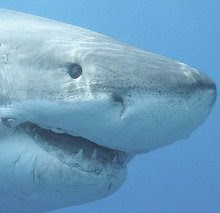Did we really expect miracles?
Barack Obama began his Presidency with the two major pluses of making history and providing a nice counterpoint to George W. Bush. His momentum was huge. The inertia represented by that momentum looked hard to counter, especially by the Republicans, seemingly powerless in their defeat and humiliation.
All this was good news to those of us who consider ourselves Democrats. Who have waited for some true progression towards a more equitable society. One where the rich don't ride through wretched mobs in blacked-out limousines, or retreat in lofty boardrooms or behind securely gated communities.
After all, the formula is an old one, tried and true: Democrats favor wage workers who do the vast majority of the jobs needing done, but individually are powerless; Republicans favor those who have the power and the money. Of course, it's historically not been such a clear distinction - except during Shrub Bush's reign, when the extremes became polarized.
During GWB's time in office, the rich did very well indeed, and the rest just kept on keeping on. The jobless recovery of the 2000-2001 recession never gave the working class what they needed - enough good paying jobs (read: union jobs). Lucky for them the housing boom gave them paper wealth that made life seem equitable. Let the rich get richer, the house is worth three times what I paid for it, so I don't care. But by the end of Bush's second term those houses had begun to shrink in value catastrophically, and the discrepancy that had grown between the rich and connected and the now-jobless workers was painfully clear.
Into that gap stepped Mr. Obama. Educated, erudite, and - we all hoped - fervently Democratic. He spoke inspiringly about ending damaging and wasteful wars, closing Guantanamo, fixing the banking system and health care, and addressing the Big Recession by boosting spending on public infrastructure projects. Relief was in sight.
One and a half years later though, and where are we? Guantanamo is still there. The 9/11 planners whose trials the President and his Attorney General can't find a place for, are there. Conflicts in Iraq and Afghanistan are on-going, and look unlikely to end for years, maybe decades. There is no peace in the Middle East - not even the remotest restarting of the Clinton era negotiations ignored by Bush during his years in office.
And the Recession looks more like a Depression all the time.
Yes, we do have a health care bill, but it's horribly flawed, weak, and no positive effect will be seen from it by most Americans for years, if ever. And it's still in the process of legal challenges that may eviscerate it further.
George Bush mangled the relief efforts for Hurricane Katrina, to the country's everlasting shame. But Barack Obama has hardly faired better with the BP Oil Spill.
We keep looking to see evidence of his intelligence and leadership, but it's just not materializing.
But maybe it can't, and never could. Perhaps the mechanisms of national politics and bureaucracy are too complex and entrenched for anyone to change. Or, maybe the system breeds leaders who support the system and don't really desire it to change.
In any event, President Obama now finds himself with inertia of a different kind. Rather than the inertia of unstoppable momentum, his now is the kind of the resting object that tends to remain in place. There's no more 'Big Mo', and it's 'All Stop' with seemingly no where to go. The
administration's announcement today that it's likely the Republicans will re-take the House in the midterm elections, was a tacit acknowledgment their time as thought leaders was up. They'll be running a defensive strategy from now on. Get re-elected for a second term, no matter what it takes. Not unlike Bill Clinton did after his health care disaster and Democrat losses in the midterm elections of his era.
In the end all we can hope for is that at least a few of the promises our leaders make to us are kept, and that some good comes of them. Whether those leaders are Republicans or Democrats, or some other party.
What did we expect, miracles?




